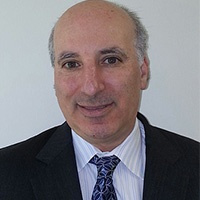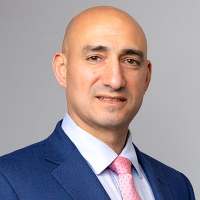 Silver Spring Criminal Lawyers, Maryland
Silver Spring Criminal Lawyers, Maryland
Sponsored Law Firm
-
 x
x

Click For More Info:
-
Law Offices of Charles L. Waechter
1435 Sulphur Spring Road 1st Floor Baltimore, MD 21227 » view mapMaryland Criminal Law The Premiere Criminal Defense Firm
Child Pornography and Criminal Attorney Serving Clients throughout Maryland. Contact today for swift and professional council, your future is on the line.
800-654-7381  Charles Waechter Baltimore, MD
Charles Waechter Baltimore, MDAttorney At Law - MD, 1985
University of Baltimore SOL, J.D. - 1985
 Video Center
Video CenterClick here for our firms introductory video and video center.
 Contact UsEmail or Call 24/7
Contact UsEmail or Call 24/7Call today for your initial evaluation
Sponsored Lawyers
1-10 of 82 matches
Criminal, Traffic, DUI-DWI, Personal Injury, Juvenile Law
Robert Demirji pursued his law degree at the University of Baltimore School of Law, where he contributed as Production Editor for the University of Baltimore Journal of International Law and was a Student Fellow at the Center for International and Comparative Law. His academic background also includes degrees in Criminology & Criminal Justice and Government and Politics from the University of Maryland, College Park. With a wealth of experience in numerous cases, Robert is dedicated to providing strong representation in criminal defense, traffic and personal injury services. His compassionate and thorough approach allows him to address challenging legal situations effectively, ensuring clients receive the support they need. Fluent in Arabic, Robert takes pride in his Lebanese roots and enjoys playing basketball, soccer, and spending time outdoors when not practicing law. To arrange a FREE consultation, please visit the website or contact 301-589-9500 today.
(more)Criminal
In 2022 and 2023, Superlawyers magazine voted Mr. Jezic as one the Top 10 Best Lawyers in all of Maryland (among 40,000 lawyers). From 2016-2021, Superlawyers voted Mr. Jezic to the exclusive group of the very best 100 lawyers in Maryland. From 2011 to 2022, Mr Andrew Jezic was selected to the very exclusive list of best criminal lawyers by Washingtonian magazine. Mr. Jezic’s wins in high-profile criminal cases have been featured in many news articles and on national TV shows, including Dateline NBC, Dr. Oz, and the Tucker Carlson show. Mr. Jezic has received nearly 100 percent of very positive reviews from scores of clients. Maryland criminal defense lawyer Andrew V. Jezic served as a Maryland prosecutor for nearly eight years, prosecuting some of the most serious felony cases in Montgomery and Anne Arundel counties. Mr. Jezic is a past president of the Maryland Criminal Defense Attorney’s Association. In 2017 Mr. Jezic was honored as one of the "Most Influential Marylanders" by the Daily Record, Maryland's preeminent legal and business newspaper.
(more)Criminal, Personal Injury, Estate, Traffic, Juvenile Law
William A. Simmons received his J.D. from the George Mason University School of Law in 1982 and received his undergraduate education at Randolph-Macon College, graduating with a B.A. in History in 1977. He is admitted to practice in Maryland and the District of Columbia. Mr. Simmons' practice is concentrated in criminal defense and civil litigation. Mr. Simmons has an extensive background in handling and trying felony and misdemeanor cases and civil cases. Over the past thirty years, Mr. Simmons has successfully defended individuals charged with serious offenses that, if found guilty, would have exposed the client to substantial periods of incarceration. Mr. Simmons has defended serious traffic offenses, including, drunk driving, reckless driving, driving while suspended, and driving without a license. In the civil arena, Mr. Simmons has collected monies for victims of negligence, including automobile accidents, slip and falls and workplace-related injuries. Mr. Simmons has attained very successful results through both negotiation and trial. Please contact Mr. Simmons to speak with him by telephone or schedule an initial consultation, for no charge, regarding any criminal matter or case involving negligence. After discussing the facts and history of your case, Mr. Simmons will provide an honest assessment of the merits of your matter. Mr. Simmons goal is to provide exceptional representation at reasonable rates.
(more)Accident & Injury, Criminal, Employment, Motor Vehicle, Lawsuit & Dispute
We work diligently to bring each and every client the best results possible. Quite often a favorable resolution is achieved because the opposing attorney is aware of our trial experience and knows we won't hesitate to litigate. This extensive courtroom experience affords us familiarity with the judicial system, the judges, and their staff. Likewise, judges and court staff know and respect us and our reputation for tenacity and integrity.
(more)Family Law, Divorce, Criminal, Litigation, DUI-DWI
Sharon T. Diamant has been working as an attorney for over twenty-five years. In October 2000, she became a prosecutor in the Montgomery County State's Attorney's Office. She left the state's attorney's office in 2002 and practiced Criminal Law in Hillsborough County, Florida for two years before returning to the state's attorney's office in 2004. Ms. Diamant remained at the Montgomery County State's Attorney's Office until 2010, when she opened her own office and went into private practice. While a prosecutor, she handled a wide variety of matters in the District Court Unit, including bad checks, burglary, theft, drunk driving and other traffic offenses, assault, and violations of protective orders (Gazette). In the Juvenile Division, she handled sexual abuse cases involving juvenile offenders. She handled one famous juvenile matter involving a youth who had molested several children in his neighborhood which ultimately led to the first-ever sexual offender legislation which would require juveniles engaged in sexual offenses to register as sex offenders (Washington Post). In 2007, Ms. Diamant joined the white-collar crime team in her office, where she handled the prosecution of a myriad of crimes, including large-scale thefts, embezzlements from employers and the federal government, misappropriations, as well as the investigation of police officer-involved shootings and crimes involving public officials. For the past fifteen years, Sharon has focused her practice on criminal law and domestic law. She appears regularly before Magistrates and Judges on all issues surrounding criminal law and domestic law, to include: contested and uncontested divorce, child custody, child support, peace and protective orders, and post-judgment issues. Sharon also handles cases that cross over between criminal and domestic law. Sharon was featured on WJLA 7 News in a case involving a grandparent's right to custody of a grandchild where the mother is deceased and the father is a convicted criminal. Sharon also handled a case of a woman accused of attempted murder but who never intended to hurt anyone. That client is now receiving mental health treatment, as opposed to being locked up in a jail. Sharon is a client's biggest advocate and at the same time acts as a mentor and friend. She personally answers her phone calls, answers all emails and texts, and is always available to her clients. She is an experienced litigator with 25 years of trial experience, but she also mediates for clients and promotes non-litigation strategies, where appropriate. Sharon is a 1999 graduate of the University of Dayton School of Law and is licensed to practice law in the State of Maryland, the State of Florida, and the US District Court in Greenbelt, Maryland. Sharon was also admitted to the US Supreme Court. She has been selected to the Super Lawyers list for the State of Maryland in 2012, 2013, 2016, 2017, 2018, 2019, 2020, 2021, 2022, 2023 and 2024. She is a member of the Montgomery County Bar Association, the Women's Bar Association, the Sobeloff Society, the Collaborative Divorce Law Society, the National College for DUI Defense, the Montgomery County Ethics Committee, the Montgomery County Criminal Law Society, and the Inns of Court. Sharon also sits on Montgomery County's Judicial Nominating Commission and is a board member with the Sobeloff Society. She has won Avvo's Client Choice Award and has a "superb" rating on Avvo.com. We are open 24/7, so give us a call today at 301-560-2685.
(more)Criminal, DUI-DWI, Family Law, Child Custody, Child Support
Carlos J.R. Salvado is a Founding Partner in the Maryland office of Salvado Law Offices. He partnered with his father, Carlos A.F. Salvado, and brother, Alberto Salvado, in 2004. He is licensed to practice law in Maryland and the Commonwealth of Virginia. He is a very experienced and trusted attorney that handles cases in several areas of practice, including criminal defense, immigration, family law, DUI/DWI, child custody, divorce, sex crimes, child support, and traffic crimes. He has extensive jury trial experience in both Maryland and Virginia. Mr. Salvado's broad legal background and trial experience allow him to effectively advocate for his business and property law clients, often achieving favorable results in complex cases. To schedule your free consultation with the Maryland Criminal Defense Attorney, please visit online or call 301-933-1814.
(more)Divorce & Family Law, Accident & Injury, Criminal, Traffic, Lawsuit & Dispute
Lyle Farmer is a practicing lawyer in the state of Maryland specializing in Divorce & Family Law. Mr. Farmer received his J.D. from the David A. Clarke School of Law in 1992.
(more)DUI-DWI, Criminal
R. Julio Aleman focuses his practice on criminal defense, representing clients in matters ranging from multiple DUI offenses and protective orders to administrative hearings tied to alleged violations of the law. Since joining the Maryland State Bar Association, he has defended clients in high-stakes cases and secured acquittals across a wide spectrum of charges. His record includes obtaining not guilty verdicts in cases involving prescription fraud, DUI, and serious felony charges, as well as preserving professional and business licenses in complex hearings. In addition to his courtroom work, Mr. Aleman has served as a lawyer and lobbyist for The Maryland-National Capital Park and Planning Commission, where he conducted legislative research, prosecuted internal affairs matters, and defended the commission in personal injury cases. He later returned to criminal defense, where his results have included full acquittals, license protections, and the dismissal of attempted first-degree murder charges. With each case, he draws on years of direct service and a deep understanding of both trial strategy and the legal system. Although no attorney can promise results, Mr. Aleman is dedicated to pursuing the best possible outcome for every client. He approaches each case with determination, using the facts and law to fight for his clients’ rights and futures. To discuss your case with Arrested for a DUI, LLC, call 301-479-5466 today or complete our contact form online.
(more)Criminal, DUI-DWI, Felony, Traffic, Expungement
Prior to joining Scrofano Law PC, Ms. Gnocchi was a solo practitioner who specialized in criminal and DUI defense for 14 years. Prior to that Mr. Gnocchi worked at a law firm in Maryland and began his career as an Assistant States Attorney in Baltimore City. During his time as a solo practitioner, he represented thousands of individuals charged with crimes in Maryland and the District of Columbia in a variety of offenses ranging from traffic offenses to serious violent felonies. In 2023, he joined Scrofano Law PC as a Trial Attorney and started the firm’s Maryland Practice. He is licensed to practice in the District of Columbia and Maryland. He is an active member of the Montgomery County Bar Association, the National Association of Criminal Defense Lawyers, and the National College for DUI Defense as well as the DUI Defense Lawyer’s Association. Mr. Gnocchi is a native Spanish speaker and fluent in both English and Spanish and has over 20 years experience in criminal law.
(more)Criminal, Personal Injury, DUI-DWI, Car Accident, Expungement
Mallon Snyder has dedicated over 40 years to assisting clients and their families as an attorney. Throughout his career, he has supported not only his clients but also their children and grandchildren. Mr. Snyder pursued a legal education with the intention of actively advocating for his clients, rather than accepting guilty pleas without thorough representation. His entire staff is committed to demonstrating genuine care for their clients, fostering lifelong relationships that lead to referrals from family, friends, and coworkers. Additionally, Mr. Snyder's team maintains strong connections with other attorneys and law firms, consistently receiving client referrals over the years. Attorney Mallon Snyder serves clients in Maryland, the District of Columbia, and eleven other Maryland counties, bringing over four decades of experience to his practice. He has conducted hundreds of jury trials and handled thousands of District Court cases. Mr. Snyder is a former President of both the Montgomery County Bar Association and the Montgomery County Bar Foundation. He also served on the Board of Governors for the Maryland State Bar Association for two years. Currently, he is a member of the District of Columbia Bar Association, the Montgomery County Bar Association, and the Maryland State Bar Association. During law school, Mr. Snyder interned with the Baltimore City State's Attorney's Office, where he participated in criminal jury trials involving cases of assault, forgery and uttering, and rape. He also managed criminal proceedings related to child abuse and CINA cases in juvenile court. As a former executive committee member of the Montgomery County Bar Association, he established the Recent Practitioners section. Mr. Snyder has been a guest speaker at the University of Maryland and CASA of Maryland and serves as a mentor to many new attorneys.
(more)




 Charles Waechter Baltimore, MD
Charles Waechter Baltimore, MD Video Center
Video Center Contact UsEmail or Call 24/7
Contact UsEmail or Call 24/7










